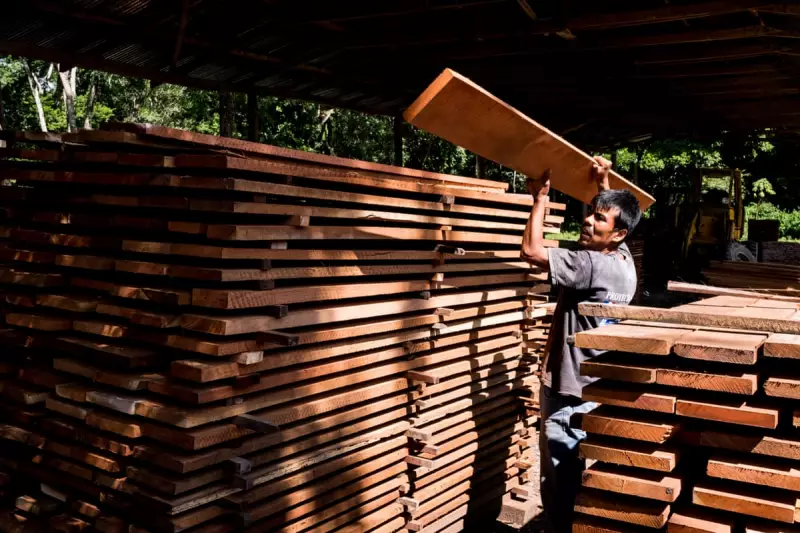
That reassuring green tick on your wooden furniture or building materials might be concealing a far less eco-friendly reality. A groundbreaking investigation has exposed significant flaws in the world's leading forestry certification systems, raising urgent questions about whether our trust in 'sustainable' wood has been misplaced.
The Certification Conundrum: Promises vs Practice
Forest certification schemes, particularly the Forest Stewardship Council (FSC) and the Sustainable Forestry Initiative (SFI), were established with a noble goal: to help consumers and businesses identify wood products sourced from responsibly managed forests. For years, their logos have become synonymous with environmental responsibility.
However, recent findings suggest a troubling gap between certification promises and on-the-ground practices. Investigators have documented cases where certified companies continue to engage in destructive logging, including the clearing of old-growth forests and critical wildlife habitats.
Where the Systems Are Failing
- Weak Enforcement: Certification audits are often announced in advance, allowing companies to temporarily improve practices.
- Conflicting Standards: Different certification bodies apply varying interpretations of sustainability rules.
- Financial Pressures: The competitive certification market creates incentives to lower standards to attract more clients.
- Transparency Issues: Limited public access to audit reports makes independent verification difficult.
The Ripple Effect on Consumers and Businesses
For environmentally conscious shoppers and sustainability-driven corporations, these revelations present a serious dilemma. Many major retailers and construction companies rely on these certifications to meet their environmental commitments and satisfy customer demand for green products.
"When consumers see that FSC or SFI logo, they assume they're making an ethical choice," explains one industry insider. "The system was designed to make complex supply chains simple to navigate, but that simplicity may now be working against genuine sustainability."
A Path Toward Genuine Sustainability
Despite the concerning findings, environmental advocates aren't calling for the abandonment of certification systems altogether. Instead, they're pushing for substantial reforms:
- Strengthened Standards: Implementing more rigorous, science-based requirements for forest management.
- Independent Monitoring: Creating truly independent oversight of certified operations.
- Greater Transparency: Making audit results and compliance data publicly accessible.
- Closing Loopholes: Addressing technicalities that allow destructive practices to continue.
The future of our global forests may depend on whether these certification schemes can evolve from well-intentioned marketing tools into genuine guardians of woodland ecosystems. As one forest campaigner noted, "The credibility of the entire green labelling movement hangs in the balance."





